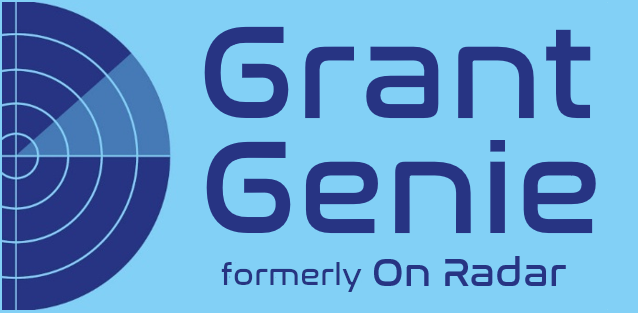
Non-Profit funding in minutes - not days!

"Am I spending too much time on this application, or not enough?"
It's the grant writer's eternal dilemma. Spend too little time and your application looks rushed and unprofessional. Spend too much time and you've invested weeks in a single opportunity that might not even succeed. Meanwhile, other funding deadlines are whooshing past while you're still perfecting paragraph three of your current application.
Let's settle this once and for all with realistic timeframes based on grant size, your experience level, and what actually makes a difference to your success rate.
The Uncomfortable Truth About Application Time
Most charities dramatically underestimate how long grant applications actually take. Here's what our analysis of successful applications reveals:
First-time applicants typically spend:
Experienced grant writers spend:
The difference? Experience, templates, and knowing what actually
matters to funders.
Time Investment by Grant Size: The Realistic Breakdown
Small Grants (Under £10,000)
Research Phase: 3-5 hours
Writing Phase: 8-15 hours
Total Time: 12-20 hours
Cost-effectiveness threshold: If your hourly cost exceeds £25, consider whether grants under £5,000 are worth pursuing.
Medium Grants (£10,000-£50,000)
Research Phase: 5-8 hours
Writing Phase: 20-35 hours
Total Time: 25-45 hours
Success rate impact: This is the sweet spot where extra time investment
genuinely improves success rates.
Large Grants (Over £50,000)
Research Phase: 10-15 hours
Writing Phase: 35-65 hours
Total Time: 45-80 hours
Professional support consideration: At this level, professional grant writers often provide better ROI than internal staff time.
What Actually Takes the Most Time (And What Doesn't Matter)
Time Sinks That Don't Improve Success Rates:
Over-researching the funder (beyond 4 hours):
After the first few hours, additional research rarely changes your application strategy significantly.
Excessive wordsmithing:
Spending hours perfecting prose when the content is already clear and compelling.
Over-designing presentation:
Fancy formatting rarely compensates for weak content.
Perfectionist editing:
Multiple rounds of minor edits that don't address fundamental issues.
Time Investments That Do Improve Success Rates:
Strong project logic and evidence base:
Time spent ensuring your project makes sense and is well-evidenced always pays off.
Precise budget calculations:
Realistic, detailed budgets build funder confidence.
Tailored funder alignment:
Demonstrating clear understanding of funder priorities.
Quality case studies and testimonials:
Real evidence of impact resonates with funders.
The Experience Factor: How Time Requirements Change
Beginner Grant Writers (0-2 years experience):
Recommendation: Start with smaller grants to build skills and templates.
Intermediate Grant Writers (2-5 years experience):
Recommendation: This is when you can tackle medium-sized grants efficiently.
Expert Grant Writers (5+ years experience):
Recommendation: Focus on larger grants where expertise creates the biggest advantage.
Time-Saving Strategies That Actually Work
1. Create a Master Content Bank
Time saved: 30-40% on subsequent applications
2. Develop a Research Template
Time saved: 50% on research phase
3. Use the 80/20 Rule
Focus 80% of your time on the 20% of content that matters most:
4. Set Time Limits
If you're exceeding these limits, you're probably over-investing or lack the templates/experience needed.
When to Walk Away: The Opportunity Cost Question
Red Flags That Suggest Moving On:
The Calculation:
If a £20,000 grant takes 40 hours to apply for, you're investing £1,000-£1,600 in staff time (at £25-£40/hour). With a 25% success rate, your effective cost per successful grant is £4,000-£6,400.
Ask yourself: Could that time be better spent on other fundraising activities?
The Quality vs. Speed Balance
Minimum Viable Application Standards:
Diminishing Returns Point:
After meeting minimum standards, additional time investment typically yields:
Questions to Ask Before You Start Writing
The Bottom Line: Time Investment Guidelines
For grants under £10,000:
Maximum 20 hours. If it takes longer, your systems need improvement.
For grants £10,000-£50,000:
25-45 hours is reasonable. This is where quality time investment pays off.
For grants over £50,000:
45-80 hours justified, but consider professional help if your internal hourly cost exceeds £30.
Universal rule: If you're spending more than 4% of the grant value in staff time, reassess your approach.
Conclusion
The "right" amount of time to spend on grant applications isn't a fixed number - it depends on grant size, your experience level, and your organisation's opportunity cost. But there are clear patterns that can guide your decisions.
Most importantly, remember that perfect applications don't win grants - good applications that clearly demonstrate funder alignment do. Your time is better spent applying to more well-matched opportunities than perfecting applications for poor-fit funders.
The most successful grant writers aren't those who spend the most time per application - they're those who efficiently identify the best opportunities and invest their time strategically where it will have the greatest impact.
Track your time investment and success rates. You'll quickly discover your own optimal time allocation and can adjust accordingly. The goal isn't to spend less time - it's to spend your time more effectively.
Updated: 21st Jun 25